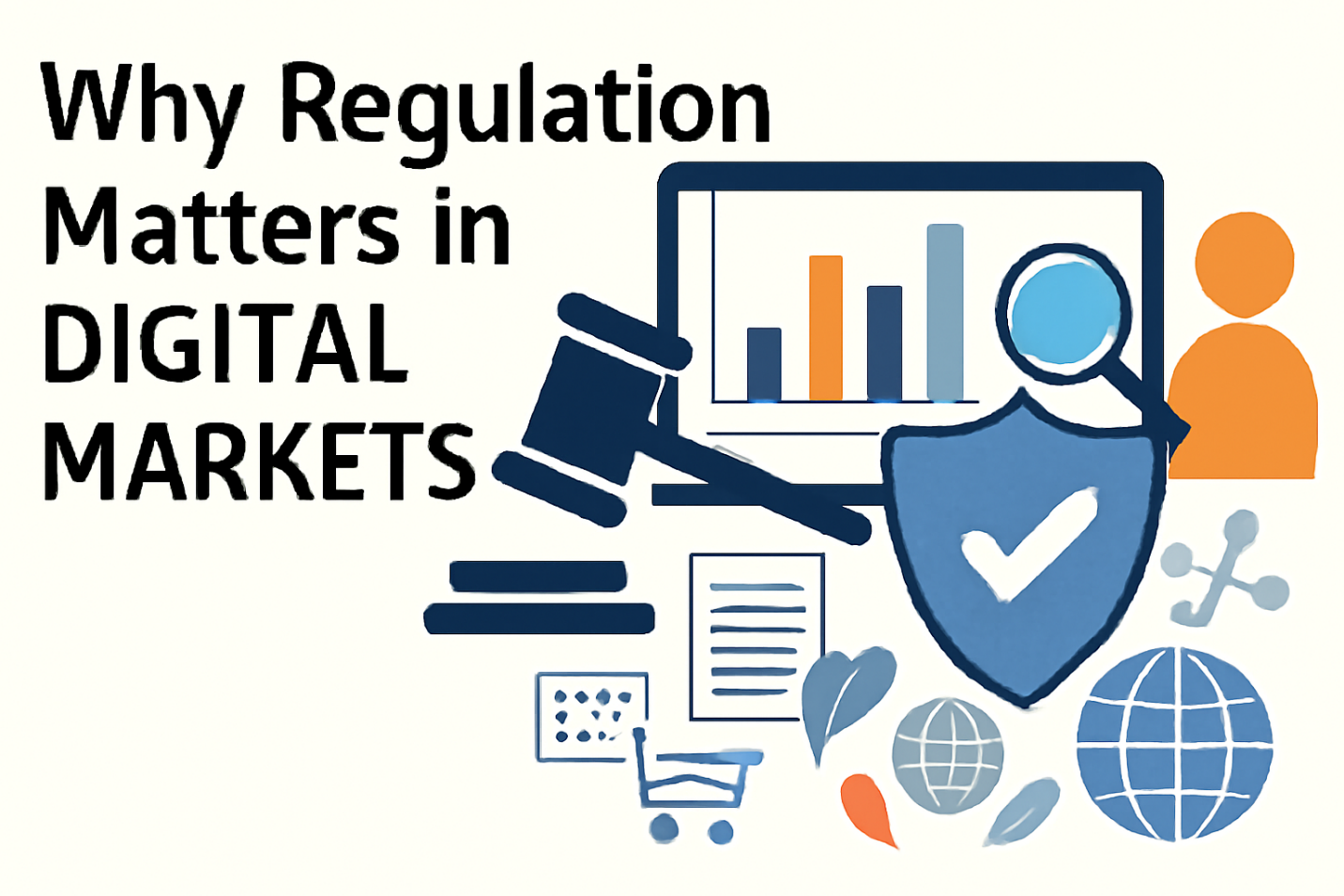Why Regulation Matters in Digital Markets

In the modern age, where digital platforms and services permeate every aspect of our lives, regulation has become a critical necessity in maintaining fairness, security, and transparency. The exponential growth of digital markets has revolutionized how we shop, interact, and consume content, creating opportunities for businesses and consumers alike. However, with such rapid development comes the risk of unchecked practices, exploitation, and monopolistic dominance. This is where regulation steps in—ensuring that these markets are not only profitable but also ethical and sustainable.
Data discussed on Oceanofgames highlights how digital platforms are often free to gather, use, and sell user data with minimal oversight. In the absence of regulation, this can lead to exploitation of consumer data for targeted advertising, questionable data-sharing practices, and privacy violations. Users, unaware of how their data is being used, often find themselves vulnerable to manipulation. Proper regulation is key in ensuring that these platforms operate transparently and protect the rights of their users while continuing to grow.
The Essential Role of Regulation in Promoting Fair Competition
Without regulation, large companies can easily dominate the digital landscape, leaving little room for smaller players to thrive. For example, companies like Google, Facebook, and Amazon have historically used their dominant market positions to undermine competition, whether by acquiring smaller competitors or manipulating services to favor their own products. In an unregulated market, these practices often go unchecked, making it harder for new or smaller companies to compete fairly.
Regulation helps to level the playing field by imposing limits on anti-competitive behaviors, such as predatory pricing or the creation of monopolies. These rules ensure that businesses, regardless of size, have an equal opportunity to offer products and services that benefit consumers. With fair competition, consumers are presented with more choices, better prices, and innovative solutions, fostering a healthier market overall.
Consumer Rights and Protection in the Digital Age
In the digital marketplace, consumer rights are under constant threat, with vast amounts of personal data being collected and used by businesses. Regulation plays a key role in safeguarding the privacy and security of users by enforcing strict guidelines on how personal data is collected, stored, and shared. Without these laws, users are left vulnerable to exploitation, including invasive advertising, identity theft, and fraud.
Regulations such as the General Data Protection Regulation (GDPR) in the European Union are designed to protect user data by giving individuals more control over how their personal information is used. These laws also compel businesses to be transparent about their data practices, ensuring that users can make informed decisions about their online activities. Without such regulations, users would face an increased risk of having their data misused, leading to erosion of trust in digital platforms.
Data Transparency and Accountability: The Need for Clarity
As the digital market continues to grow, data transparency becomes increasingly crucial. Businesses collect vast amounts of data on users, from browsing habits to purchasing history, and use this data to tailor their products and services. However, in the absence of clear regulations, companies often misuse this data for profit, often without the user’s consent or knowledge.
Regulations require companies to disclose how they collect and use consumer data, ensuring that businesses are held accountable for their actions. This transparency helps build trust between consumers and businesses, creating a safer and more ethical digital environment. For example, privacy policies that are easy to understand and clearly outline data usage practices are now required by law in many regions. This gives consumers the power to make informed choices about their digital footprint and ensures that businesses remain transparent in their data handling.
Balancing Regulation and Innovation
A common criticism of regulation is that it stifles innovation, making it harder for companies to experiment and develop new technologies. However, this does not have to be the case. Well-designed regulations can actually encourage responsible innovation by setting boundaries that encourage businesses to think creatively while protecting consumers’ interests.
When businesses know that they are operating within a clear regulatory framework, they are more likely to focus on innovation that benefits both the company and its customers, rather than cutting corners or engaging in unethical practices. For example, regulations in the tech industry may require companies to design products with stronger security measures, which leads to more innovative and secure solutions. Regulations can also encourage companies to develop products that are more inclusive and accessible, benefiting a wider range of users.
The Global Scope of Digital Market Regulations
Digital markets are not confined by national borders. With the rise of global platforms, services, and marketplaces, regulations must address issues that extend beyond local jurisdictions. The challenges of cross-border regulation are significant, as different countries have different laws regarding data privacy, competition, and consumer protection.
However, the increasing need for digital market regulation has led to international efforts to create standardized frameworks that address these global issues. Organizations such as the European Union and the United Nations have made strides toward creating unified regulations that can be applied across borders. Such regulations help prevent digital fraud, protect intellectual property, and ensure that businesses are held to the same standards, regardless of where they operate.
Global cooperation is essential to creating a secure and fair digital marketplace. Countries must work together to develop consistent rules that protect consumers while promoting innovation and competition in a way that benefits all stakeholders.
Conclusion: Building a Fair and Secure Digital Market
In conclusion, regulation is essential for the long-term success of digital markets. By ensuring fair competition, protecting consumer rights, enforcing data transparency, and promoting responsible innovation, regulations provide the foundation for a safe and thriving digital economy. As digital platforms continue to grow, it is vital that governments and international organizations work together to create clear, effective regulations that address the challenges of the digital age. With proper regulation in place, digital markets can continue to innovate and evolve in a way that benefits both businesses and consumers, fostering trust, transparency, and long-term success.





